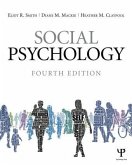The concept of prejudice has profoundly influenced how we have investigated, explained and tried to change intergroup relations of discrimination and inequality. But what has this concept contributed to our knowledge of relations between groups and what has it obscured or misrepresented? How has it expanded or narrowed the horizons of psychological inquiry? How effective or ineffective has it been in guiding our attempts to transform social relations and institutions? In this book, a team of internationally renowned psychologists re-evaluate the concept of prejudice, in an attempt to move beyond conventional approaches to the subject and to help the reader gain a clearer understanding of relations within and between groups. This fresh look at prejudice will appeal to scholars and students of social psychology, sociology, political science and peace studies.
Hinweis: Dieser Artikel kann nur an eine deutsche Lieferadresse ausgeliefert werden.
Hinweis: Dieser Artikel kann nur an eine deutsche Lieferadresse ausgeliefert werden.
'In Beyond Prejudice, an eclectic, internationally renowned group of social psychologists interrogate such staples of their discipline as emotional antipathy, implicit bias, stereotype construction and processes of communication and ideology in promoting racism, sexism and dehumanizing treatment in general. All of the authors are asking how we can change hearts, minds and - most important of all - social systems that foster inequality, indifference and hypocrisy. These are vital questions, and the contributors offer thoughtful, valuable answers.' John T. Jost, New York University, and co-editor of Social and Psychological Bases of Ideology and System Justification








